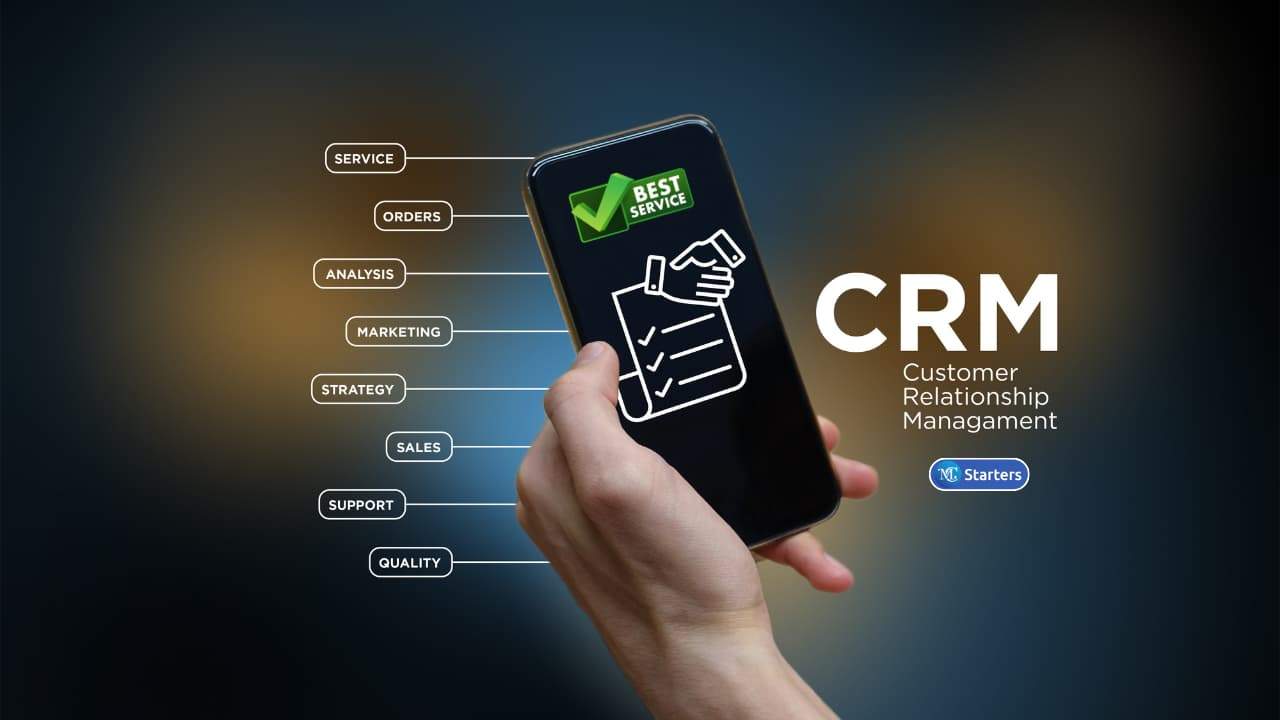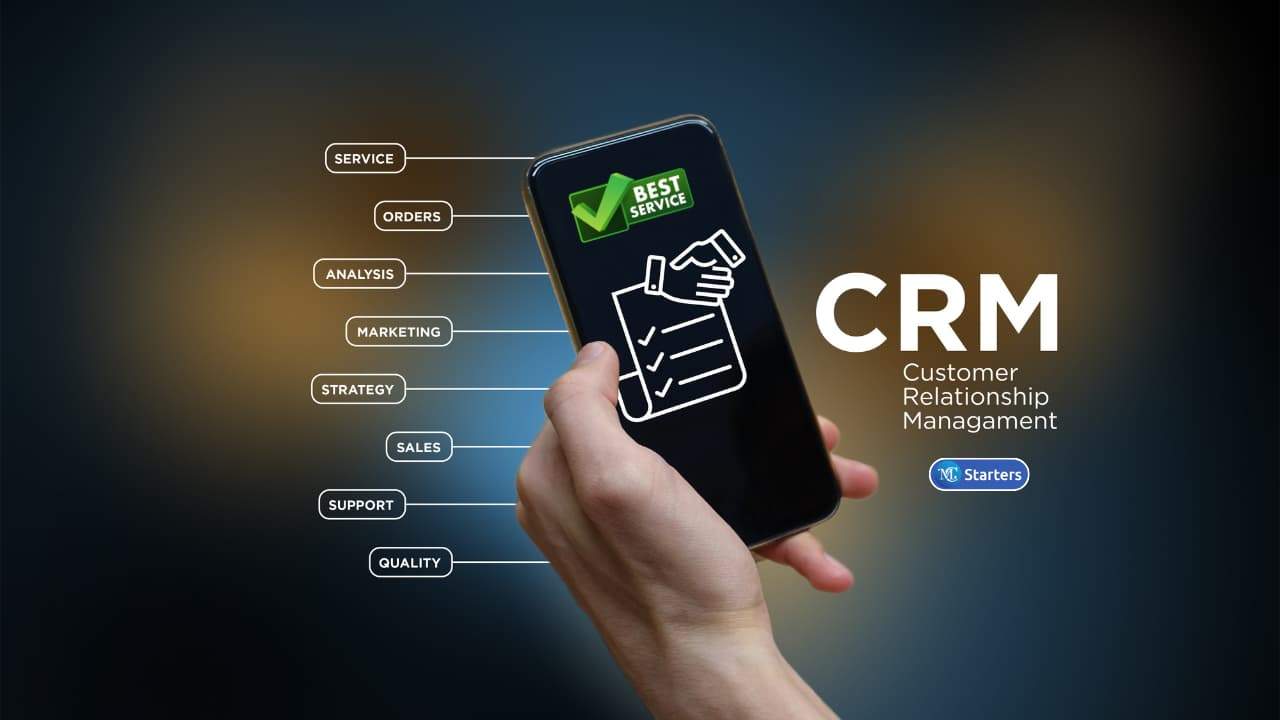Finding the best CRM for customer service is crucial for any business aiming to enhance customer interactions and streamline operations. This guide delves deep into the essential features, considerations, and implementation strategies to help you choose the right platform. We’ll explore everything from defining your needs to evaluating vendor support, ultimately empowering you to make an informed decision.
Choosing the right CRM is a critical step for any organization prioritizing customer satisfaction. This in-depth exploration examines the key factors influencing the selection process, ensuring you make an informed decision that aligns with your specific business goals and customer service requirements.
Defining Customer Service CRM Needs
A robust Customer Relationship Management (CRM) system is crucial for modern customer service operations. It goes beyond simply tracking contacts; a dedicated customer service CRM needs to be a central hub for managing interactions, resolving issues, and ultimately, enhancing the customer experience. This necessitates a deep understanding of the multifaceted nature of customer service and the specific needs of a CRM designed for this function.A well-implemented customer service CRM can streamline processes, reduce response times, and improve overall customer satisfaction.
It empowers agents with the tools they need to quickly access and resolve issues, leading to happier customers and a more efficient support team. The key is to choose a CRM that aligns precisely with the unique needs and challenges of your customer service department.
Customer Service Aspects Addressed by a CRM
Customer service encompasses a wide range of activities, from initial contact to post-resolution follow-up. A robust CRM should effectively manage all these aspects. This includes handling inquiries via various channels (phone, email, chat, social media), tracking ticket progress, and escalating complex issues to appropriate teams. It should also provide tools for managing knowledge bases, self-service options, and customer feedback mechanisms.
The CRM should capture and store all interaction data, providing a complete view of each customer’s history.
Examples of Customer Service Challenges Solved by a CRM
Customer service departments often face numerous challenges, including inconsistent communication, lost customer data, and slow response times. A CRM can effectively address these problems. For instance, a CRM can automate responses to frequently asked questions, enabling faster resolution of simple issues. It can also track the progress of each support ticket, ensuring no customer is forgotten and providing agents with the context needed to provide tailored support.
Furthermore, a CRM can consolidate data from multiple channels, providing a holistic view of the customer journey.
Key Features and Functionalities for a Customer Service CRM
A customer service CRM must possess essential features to ensure efficiency and effectiveness. These include robust ticket management systems, allowing for easy assignment, prioritization, and tracking of support requests. Integration with various communication channels is crucial for seamless interaction across platforms. A robust knowledge base is vital for agents to quickly access information and resolve issues efficiently.
Reporting and analytics tools are essential to monitor performance metrics, identify trends, and optimize processes.
Importance of Seamless Integration with Other Business Systems
Integration with other business systems is paramount for a customer service CRM. This allows for a holistic view of the customer, encompassing sales, marketing, and order fulfillment data. For instance, seamless integration with an e-commerce platform allows agents to quickly access order details and provide accurate support. Integration with billing systems ensures agents can resolve billing inquiries swiftly and efficiently.
Importance of Customer Data Management in a Customer Service CRM
Effective customer data management is fundamental to a customer service CRM. A CRM should meticulously collect, store, and manage customer data, ensuring data accuracy and consistency. This data should encompass contact information, interaction history, purchase history, and feedback. This comprehensive view of the customer allows agents to provide personalized and relevant support. This ensures that agents have access to a complete customer profile, enabling them to tailor their responses to individual needs.
Data security and privacy compliance are also crucial considerations.
Evaluating CRM Features for Customer Service

Choosing the right CRM for customer service is crucial for streamlining operations and improving customer satisfaction. A well-implemented CRM system can significantly enhance communication, track interactions, and automate key processes, ultimately boosting efficiency and productivity within the customer service department.A robust CRM system empowers customer service teams to effectively manage customer interactions, enabling them to respond promptly and efficiently to inquiries and complaints.
This, in turn, fosters positive customer experiences and strengthens brand loyalty.
Tracking and Managing Customer Interactions
Effective customer relationship management hinges on the ability to track and manage interactions comprehensively. A CRM system should allow for detailed logging of every customer contact, including communication channels used (email, phone, chat), the issues discussed, resolutions provided, and the outcome of each interaction. This comprehensive record-keeping facilitates a deeper understanding of customer needs and preferences, enabling proactive service delivery and personalized experiences.
Historical data allows for trend analysis and proactive issue resolution.
Customer Support Ticket Management
Different CRM platforms offer varying degrees of support ticket management capabilities. Some platforms excel at assigning and prioritizing tickets, while others are better at tracking progress through different stages of resolution. Sophisticated systems allow for automated routing based on ticket type or urgency, ensuring tickets are handled by the most appropriate agents. A key comparison involves evaluating the platform’s ticket categorization, escalation protocols, and the ease of assigning tickets to the right personnel.
Platforms with robust search and filtering features streamline ticket retrieval and management.
Improving Communication Channels for Customer Service Teams
A CRM system can significantly improve communication channels for customer service teams. Integration with various communication tools, such as email, phone, and live chat, allows for seamless data transfer and consolidated customer views. This centralized approach reduces the risk of information silos and ensures all customer interactions are documented in one place. Real-time updates and notifications regarding customer issues and progress enhance responsiveness.
Reporting and Analytics for Customer Service
A CRM system’s reporting and analytics capabilities are invaluable for customer service teams. Customizable dashboards allow for tracking key metrics, such as resolution time, customer satisfaction scores, and agent performance. These insights provide valuable data for identifying areas needing improvement and optimizing service delivery. For example, identifying trends in customer complaints can help proactively address recurring issues.
Automating Customer Service Processes
Automation is a key benefit of a CRM system. Automating routine tasks like email responses, appointment scheduling, and knowledge base updates frees up customer service agents to focus on more complex issues. Automated workflows can significantly reduce response times and improve overall efficiency. For example, automated email responses to frequently asked questions can reduce the workload on agents, while intelligent routing ensures the right agent handles the issue.
Pricing Models for Customer Service CRMs
| CRM Name | Pricing Model | Key Features |
|---|---|---|
| Salesforce | Subscription-based, tiered pricing | Comprehensive suite of features, including robust customer service modules, sales, and marketing tools. |
| Zendesk | Subscription-based, tiered pricing | Excellent for customer support ticketing, live chat, and help desk functionalities. |
| HubSpot | Subscription-based, tiered pricing | Offers a free version with limited features, and paid plans include customer service tools. |
| Zoho CRM | Subscription-based, tiered pricing | Provides a wide range of features, including customer service, sales, and marketing tools in one platform. |
Note: Pricing and features can vary depending on the specific plan and chosen add-ons. Always check the vendor’s website for the most up-to-date information.
Analyzing Customer Service CRM Integrations
Integrating a customer service CRM with other systems is crucial for a streamlined and efficient workflow. A well-integrated CRM enhances data visibility and facilitates better decision-making. This section delves into the importance of various integrations, emphasizing their impact on customer service operations.
Common Customer Service CRM Integrations
A robust CRM system should seamlessly integrate with other applications to maximize its utility. This interoperability allows for a holistic view of customer interactions, encompassing all touchpoints from initial contact to resolution. The table below illustrates some typical integrations:
| CRM | Integration Type | Benefit |
|---|---|---|
| Zendesk | Live Chat | Provides real-time assistance, enhancing customer satisfaction by addressing queries instantly. |
| Salesforce | Marketing Automation | Allows for coordinated campaigns, enhancing customer engagement through targeted communication. |
| Freshdesk | Email Marketing | Facilitates personalized email communication, providing tailored support and fostering customer relationships. |
| HubSpot | Social Media Management | Streamlines social media engagement and response, offering comprehensive support across platforms. |
| Zoho CRM | Accounting Software | Provides comprehensive financial insights, enabling efficient tracking of customer interactions and associated costs. |
Mobile Accessibility for Customer Service CRMs
Mobile accessibility is paramount for customer service CRMs. Customer service agents can access crucial data and respond to queries in real-time, regardless of their location. This responsiveness is critical for maintaining high levels of service and satisfaction, especially in situations requiring immediate responses.
CRM Integration with Marketing Automation Tools
Integrating a customer service CRM with marketing automation tools is beneficial for enhanced customer experience. Customer data from service interactions can be used to personalize marketing campaigns. For example, issues or product feedback noted during service calls can inform targeted marketing efforts. This integration enables proactive engagement with customers, addressing their specific needs and preferences.
Impact of Security Measures in a Customer Service CRM
Robust security measures within a customer service CRM are essential. Protecting sensitive customer data is paramount. Comprehensive security protocols, including encryption and access controls, prevent unauthorized access and safeguard customer privacy. Compliance with industry regulations like GDPR is critical to maintain trust and credibility. Data breaches can severely damage a company’s reputation and lead to substantial financial penalties.
Scalability in a Customer Service CRM
Scalability is a key consideration when choosing a customer service CRM. A CRM should be able to adapt to increasing customer volumes and changing business needs. Businesses must anticipate growth and select a CRM that can handle future demands. A scalable CRM system ensures the platform can grow with the business without compromising performance or functionality.
Assessing Customer Service CRM User Experience
A crucial aspect of choosing a Customer Relationship Management (CRM) system for customer service is understanding its user experience (UX). A poor UX can lead to agent frustration, decreased efficiency, and ultimately, dissatisfied customers. A well-designed CRM, on the other hand, empowers agents to provide exceptional service, leading to improved customer satisfaction and loyalty. This section dives into the specifics of assessing CRM user experience, including interface design, training needs, agent roles, personalization strategies, and team-size considerations.
User Interface and User Experience Comparison
Different CRMs offer varying degrees of user-friendliness. A seamless interface and intuitive design are key to agent productivity. The user experience encompasses not only the visual aspects (UI) but also the overall flow and ease of use. A well-designed CRM should make it simple for agents to access and manage customer data, track interactions, and resolve issues efficiently.
| CRM | UI/UX Design | Ease of Use |
|---|---|---|
| CRM A | Clean, modern design; intuitive navigation; clear visual cues. | High; agents report minimal training time required. |
| CRM B | Slightly cluttered interface; some features are less intuitive. | Moderate; agents may need additional training. |
| CRM C | Complex layout; some features are hidden or require extensive searching. | Low; agents may find it challenging to locate necessary information. |
Note: This table is illustrative and based on hypothetical CRMs. Actual experiences may vary.
Importance of User Training and Support
Effective use of a CRM hinges on adequate training and ongoing support. Comprehensive training programs should cover all essential features, data entry procedures, and best practices for interaction management. Ongoing support through FAQs, webinars, and dedicated support channels is critical for agents to address issues and maintain optimal efficiency. A robust support system prevents agents from feeling overwhelmed and ensures continuous improvement in CRM usage.
Role of Customer Service Agents
Customer service agents are the heart of any CRM system. They need to understand the system’s capabilities and adapt their workflows accordingly. Effective agents utilize the CRM’s features to manage customer interactions, track issues, and escalate problems when necessary. A key role is also in providing constructive feedback on the CRM to help improve its functionality.
Personalizing Customer Service with a CRM
CRMs enable personalized customer service by allowing agents to access detailed customer histories. This data can be leveraged to tailor interactions, anticipate needs, and provide relevant solutions. This includes leveraging past purchase history, communication preferences, and known issues. This personalized approach fosters stronger customer relationships and boosts customer satisfaction. For example, a CRM can automatically greet a customer with a personalized message based on their past interactions.
Ease of Use Across Team Sizes
The ease of use of a CRM can vary depending on the size of the customer service team. Smaller teams might find simpler CRMs more manageable, while larger teams may benefit from more robust and scalable solutions. Large teams may need a CRM with features like advanced reporting and automation to manage the volume of interactions. Smaller teams might be more suited to a CRM with a simpler interface and less complex functionality.
Evaluating Customer Service CRM Vendor Support
Choosing the right CRM for customer service hinges not just on features but also on the vendor’s support capabilities. A robust support system can significantly impact your team’s ability to effectively utilize the CRM and troubleshoot issues. A reliable vendor ensures your team can leverage the system’s full potential and address problems promptly, minimizing downtime and maximizing efficiency.Vendor support extends beyond basic technical assistance; it encompasses ongoing training, readily available resources, and a responsive approach to addressing customer needs.
This proactive approach allows for a smooth transition and successful integration of the CRM into your workflow. Understanding the support options offered by different vendors is crucial in making an informed decision.
Vendor Support Options Overview
Different CRM vendors employ various support channels to cater to their customers’ diverse needs. These channels include phone support, email ticketing systems, online knowledge bases, and community forums. Some vendors offer live chat or video conferencing options for more immediate assistance. A comprehensive understanding of these channels is vital to evaluating the effectiveness of the vendor’s support infrastructure.
Customer Support Interaction Examples
Customer support interactions vary widely depending on the vendor and the nature of the issue. Some vendors offer highly responsive phone support, allowing customers to quickly resolve critical issues. Others excel in providing extensive online documentation, enabling self-service solutions for common problems. Examples include a company reporting swift resolution of a critical data migration issue via phone support with a vendor, while another highlights a comprehensive knowledge base that resolved a series of minor configuration issues without needing external help.
Observing customer testimonials and reviews can provide valuable insights into real-world support experiences.
Vendor Responsiveness and Availability
Vendor responsiveness and availability are critical factors in evaluating support. A vendor’s ability to quickly address customer inquiries and provide timely solutions is essential. Vendors with a dedicated customer support team that operates during extended hours or across multiple time zones demonstrate a commitment to providing round-the-clock assistance, proving more responsive and helpful in addressing customer needs. Vendors offering 24/7 support, along with quick response times to support tickets, contribute to a better customer experience.
Importance of Ongoing Training and Resources
Ongoing training and readily available resources are vital components of a successful CRM implementation. Vendors providing comprehensive training materials, including tutorials, webinars, and documentation, empower users to effectively utilize the system. Dedicated training resources, in addition to self-service guides and online forums, can significantly reduce the need for extensive support interactions and improve user proficiency.
Technical Support Methods
Several methods are available for receiving technical support for customer service CRMs. These methods include phone support, email support, online chat support, self-service portals with FAQs and tutorials, and community forums. These support options ensure customers can access help in a variety of ways, catering to different preferences and needs. A blend of these options demonstrates a commitment to comprehensive support.
Illustrating Customer Service CRM Implementation

Implementing a Customer Relationship Management (CRM) system for customer service is a significant undertaking that requires careful planning and execution. A well-implemented CRM system can streamline processes, improve agent productivity, and enhance the overall customer experience. This section details the key steps and considerations involved in a successful CRM implementation.
Steps in CRM Implementation
A phased approach to implementation is crucial for minimizing disruption and maximizing the system’s effectiveness. The process generally involves these key steps:
- Needs Assessment and Planning: Carefully define the specific needs of the customer service department, considering existing processes, desired outcomes, and future growth plans. This stage involves defining key performance indicators (KPIs) that the CRM will help track and measure.
- Selection and Customization: Choose a CRM solution that aligns with the identified needs. Customization is often necessary to tailor the CRM to specific workflows and integrate with existing systems. This customization stage should be planned and budgeted for, including potential costs and time.
- Data Migration: Transferring existing customer data into the new CRM system is a critical step. This stage requires meticulous planning and testing to ensure data integrity and accuracy.
- User Training and Adoption: Provide comprehensive training to all customer service agents on how to use the new CRM system effectively. This training should cover both basic functionalities and advanced features.
- Testing and Pilot Programs: Before a full implementation, test the system thoroughly in a pilot program. This enables early identification of potential issues and allows for adjustments before a full rollout.
- Go-Live and Ongoing Support: The final stage involves migrating all customer service operations to the new CRM system. Ongoing support, monitoring, and maintenance are vital to ensure the system’s effectiveness.
Importance of Data Migration
Data migration is a critical component of a successful CRM implementation. It involves moving existing customer data from legacy systems into the new CRM. This is not simply a copy-paste operation. It demands careful planning to ensure data accuracy and consistency. Data cleansing and validation procedures are essential to remove errors and ensure data quality in the new system.
Accurate and reliable data is the foundation of any effective CRM system.
Incomplete or inaccurate data can lead to inaccurate reports, inefficient operations, and ultimately, a poor customer experience. Thorough data migration planning, including data mapping, validation, and testing, ensures a smooth transition and minimizes the risk of data loss or corruption.
Integrating with Existing Systems
Integrating the customer service CRM with existing systems, such as ticketing systems, help desk software, and marketing automation platforms, is essential for seamless workflow. This integration improves data flow and reduces manual data entry. Careful planning and API integration are key to successful integration.
- API Integration: Utilizing Application Programming Interfaces (APIs) allows for real-time data exchange between different systems, improving efficiency and reducing manual tasks.
- Data Synchronization: Implementing data synchronization mechanisms ensures that data is consistently updated across all integrated systems.
Roles and Responsibilities During Implementation
Successful CRM implementation requires a dedicated team with clearly defined roles and responsibilities. This includes project managers, technical staff, customer service representatives, and stakeholders. A well-defined structure ensures accountability and facilitates smooth communication.
- Project Manager: Oversees the entire implementation process, ensuring adherence to the project plan and budget.
- Technical Staff: Responsible for system configuration, integration, and maintenance.
- Customer Service Representatives: Provide feedback and input throughout the process, ensuring the CRM aligns with their needs.
- Stakeholders: Senior management or decision-makers provide oversight and approval.
Successful CRM Implementations
Several successful CRM implementations across various industries demonstrate the benefits of a well-executed strategy. These implementations typically show improved customer service metrics, increased efficiency, and enhanced agent satisfaction.
- Retail: A large retail chain successfully implemented a CRM system that improved customer service response times by 25% and reduced customer complaints by 15%. The integration with their existing point-of-sale system facilitated accurate order tracking and improved customer satisfaction.
- Financial Services: A financial institution streamlined their customer service operations using a CRM, enabling faster issue resolution and improved customer satisfaction scores.
- Healthcare: A healthcare provider leveraged a CRM to improve patient communication and appointment scheduling, resulting in reduced wait times and increased patient satisfaction.
Wrap-Up

In conclusion, selecting the best CRM for customer service involves a multifaceted evaluation process. This guide has highlighted the key elements to consider, from functionalities and integrations to user experience and vendor support. By carefully weighing these factors, businesses can choose a CRM that effectively improves customer interactions, streamlines operations, and ultimately drives business success.
Q&A
What are the common customer service challenges that a CRM can solve?
CRMs can address issues like inconsistent customer data, slow response times, difficulty tracking interactions, and lack of a centralized customer view. They also help with managing multiple communication channels and automating repetitive tasks.
How does a CRM improve communication channels for customer service teams?
CRMs often integrate with various communication platforms (email, phone, chat), allowing agents to access all customer interactions in one place. This leads to a more unified and efficient communication flow.
What are some common CRM integrations for customer service?
Common integrations include email marketing platforms, live chat tools, social media platforms, and help desk software, enabling seamless data flow and improved customer support.
What’s the importance of scalability in a customer service CRM?
As your business grows, your CRM should be able to accommodate increasing customer volume and agent count without significant performance issues. Scalability ensures long-term support for business growth.
What is the role of customer service agents in using a CRM effectively?
Agents need to be trained on the CRM’s features and functions to effectively use it. They must understand how to efficiently manage customer interactions, track issues, and use the CRM’s reporting and analytics tools to improve their performance.






